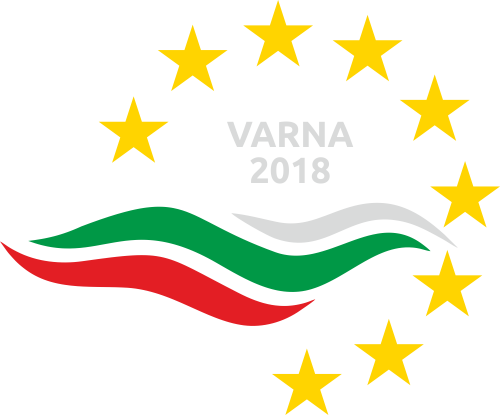Social Economy as an Effective Model for Social Inclusion, June 2018, Varna Bulgaria

EASPD, in cooperation with the National Alliance for Social Responsibility (NASO) in Bulgaria organised the international conference in Varna (Bulgaria). The conference “Social Economy as an Effective Model for Social Inclusion - Social entrepreneurship, social services, employment” is part of the official program of the Bulgarian Presidency of the Council of the European UnionThe conference focussed on the concept of social economy with the advantages, challenges and the state of play in European Policy and discussed if it really leads to a more inclusive EU with social cohesion? The event also looked at the legal frameworks in different European countries, and sharred best practices.
Conference Theme: Social Economy as an Effective Model for Social Inclusion
Keynote and Workshop Presentations
Keynote 1: What is social Economy: Challenges and Opportunities - Meelis Joost
Keynote 2: Social Economy, a Tool for Social Inclusion for Persons with Disabilities - Cristian Rovira
Keynote 3: Social economy enterprises as a tool for social inclusion (BG) - Teodora Lyubenova
Keynote 4: Social Enterprises: EU Policy Context - Dana Verbal
Keynote 5: Social Inclusion in Rural Development: Challenges and Opportunities - Maria Gafo
Keynote 6: Social Entrepreneurship: Law in Slovenia - Nena Dokuzov
Keynote 7: National Legislative Frameworks: Promising Models in the EU - Alberto Alberani
Keynote 8: Social Economy, What's in a Name? Social Entrepreneurship - Stef De Cock
Workshop 1: Entrepreneurship in Developing Disability Services: Myth or Success Factor? - Johannes Schädler
Workshop 1: To Ensure the Quality of Life of People with Intellectual Disabilities - Grup Fundació Ramon Noguera
Workshop 2: The role of Social Enterprise in a Circular Economy - Antigone Dalamaga
Workshop 2: Innovation for Better Quality of Life - Stoyana Stoeva
Workshop 3: Social Economy as an Effective Model for Social Inclusion - Antonio B. García Sabater
Workshop 3: Education in Social Entrepreneurship (BG) - Milena Yorgova
Workshop 4: Social Economy contributes to Inclusion and Diversity in Society (BG) - Miryana Malamin-Siriyski
Workshop 4: Middelpunt: Care Tourism as part of a Booming Business Trend - Philip Vanneste
Workshop 5: Innovative Social Services: A Contribution to Rural Community Development - Michael Longhino
Workshop 6: Presentation of the Municipal Policy for Improving the Quality of Life of People with Disabilities (BG) - Maya Kazandhieva
Workshop 6: Development of Municipal Policy with a Focus on Social Entrepreneurship: Creation, Support and Development of Social Enterprises at Local Level (BG) - Yasho Minkov
Workshop 7: Social Enterprises can transform Sheltered Workshops to Social Economy - Arend Pieterse
Workshop 7: The PIKSL Principle: People with Learning Disabilities as Experts for Simplification - Marius Mews
Workshop 7: From Protected Operation to Integrating Organization - Irad Eichler
Workshop 8: Socially Responsible Public Procurement in the EU - Anna Lupi
Workshop Friday: Legal Framework & Best Practice Bulgaria (BG) - Sultanka Petrova
Workshop Friday: Best Practice in Slovenia 1 - Nena Dokuzov
Workshop Friday: Best Practice in Slovenia 2 - Nena Dokuzov
Workshop Friday: Customized Work Companies 1 Belgium - Groep Maatwerk
Workshop Friday: Inclusion through the use of Social Economy Belgium - Zonnelied vzw
Workshop Friday: Legal Framework and Best Practice in Italy 1 - Alberto Alberani
Workshop Friday: Legal Framework and Best Practice in Italy 2 - Silvestro Plumari
Conference Details
- Present and discuss the social economy concept and its effects on quality of life and social cohesion as well as a more sustainable and inclusive society via its underlying values as well as its initiatives and actions.
- Show illustrative case study examples of how organisations, regardless of whether they work directly in the disability field or not, can be examples of diversity and act as models for ‘disability mainstreaming’.
- Show how the social economy can contribute to the Sustainable Development Goals (SDGs) of the UN.
- Promote a disability mainstreaming approach, in addition to disability specific initiatives, in society as a whole and in Social Economy enterprises and organisations in particular.
- Present and discuss the EU strategy on social economy.
- Evaluate different concepts and their conditions of success.
- Present and evaluate different frameworks (legal frameworks, financial and tax frameworks.
Background
The social services sector currently employs over 10 million staff with over 1.7 million new jobs created in Europe between 2008 and 2015. With an ageing population and changing family patterns, it is expected that the sector will continue to grow over the next few decades. For the sector to respond positively to this trend and continue to provide high quality social services, it is essential that any framework on social services covers the following issues:
- Ensuring adequate, continuous and sustainable funding of the sector, guaranteeing the provision of high quality individualized social services for all and enabling social innovation.
- Improving the attractiveness of the sector for workers, by improving salaries, working conditions and career paths.
- Managing the transition to community based services in line with rapidly evolving role of public authorities, societal changes and individual needs.
- Embed technological developments as key elements supporting innovation in the sector.

